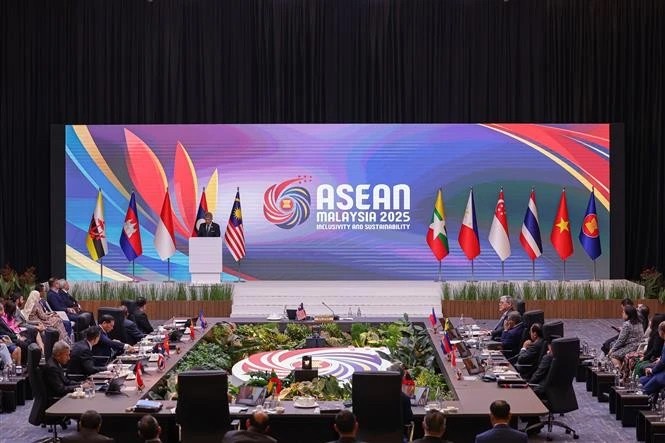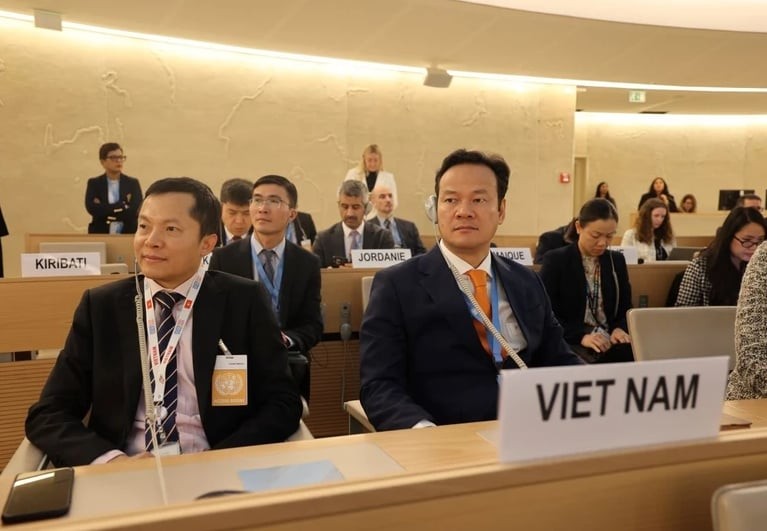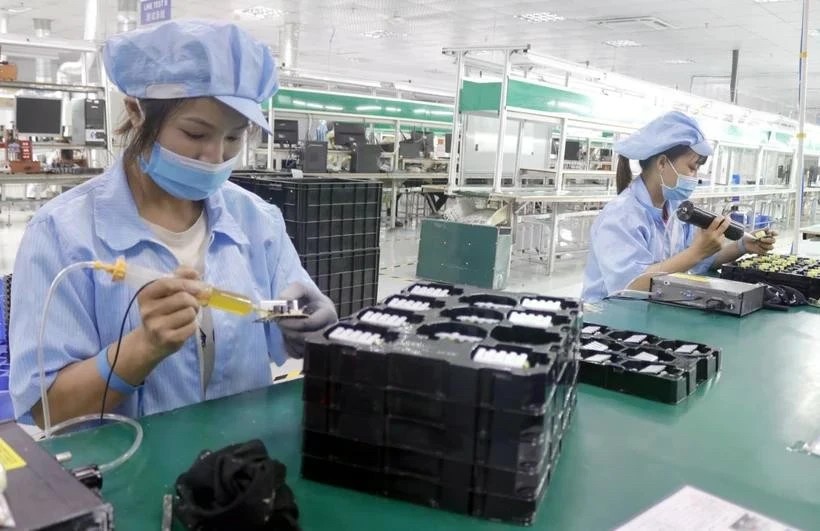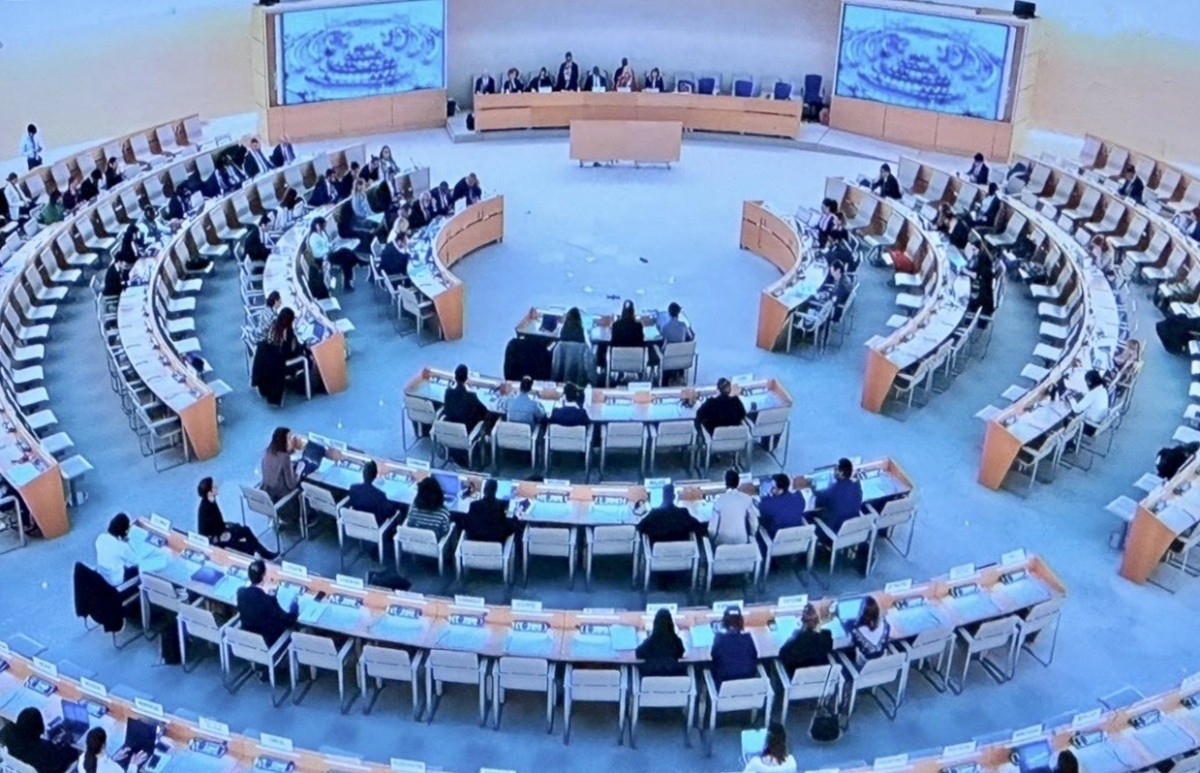Human Rights Ensured in Pandemic Situation
A scientific conference named "Ensuring human rights in the pandemic situation" was held by Hanoi Law University on Nov. 24.
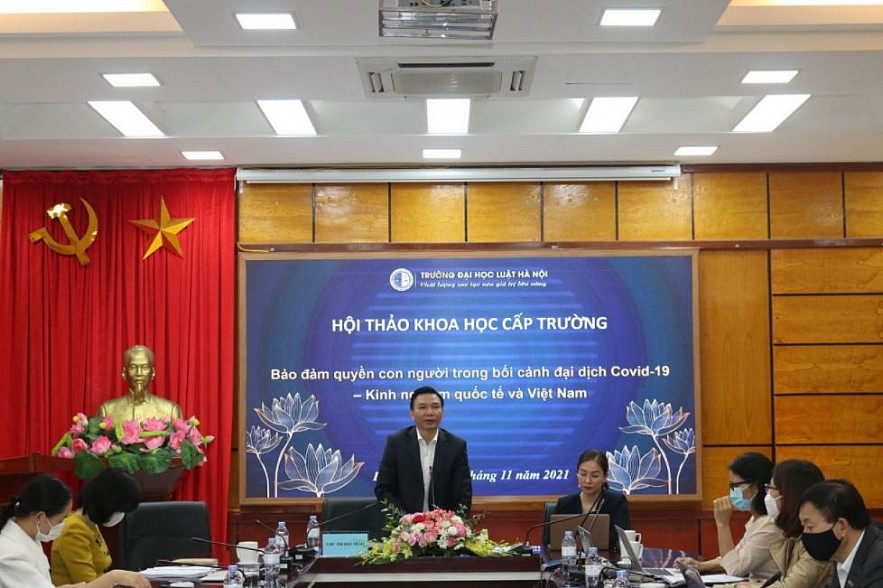 |
| At the event. |
Four most affected groups of rights by the pandemic
Chu Manh Hung, chairman of the university's council, said the pandemic not only caused a health emergency but also an unprecedented socio-economic crisis. Countries have applied measures to prevent the pandemic, yet those measures leave both direct and indirect effects on human rights.
The most affected rights include the rights to live and enjoy healthcare services, individual freedoms, the rights to access information, and the rights of vulnerable groups.
Regarding the first group, Nguyen Hai Luu, director of the department of international organizations under the Ministry of Foreign Affairs said that people's rights to live and access health care services, medical examination, and treatment are the most severely affected. Covid-19 has claimed the lives and influenced the health of tens of millions of people over a short period of time. Although vaccine is available, the absence of a definitive drug or treatment regimen leaves doors for the pandemic to continue threatening life.
As for the group of individual freedoms, to prevent the infection, each country has its own laws to isolate infected people for a necessary period according to the guidance of health authorities.
Regarding the rights to access information, the promotion of spreading accurate news on pandemic prevention and control should receive more attention. According to Nguyen Hai Luu, it is a new aspect of human rights that only appears in the pandemic. Many countries, Vietnam included, face difficulties in ensuring cybersecurity and preventing fake news which disturbing the achievements in coronavirus prevention.
Though the pandemic affects every person in terms of health problems, certain groups are at greater risk, such as the elderly, children, and people with underlying diseases. Therefore, this group of people needs to be protected and supported. Prevention restrictions can bring negative impacts on those groups. Children cannot go to school, workers lose their jobs, healthcare staff face great risk of infection. 70% of the world's nurses and midwives are women, making women in general more vulnerable to the disease. People with disabilities face difficulties when accessing necessities due to insufficient human resources and services. Residents in remote areas struggle to access information.
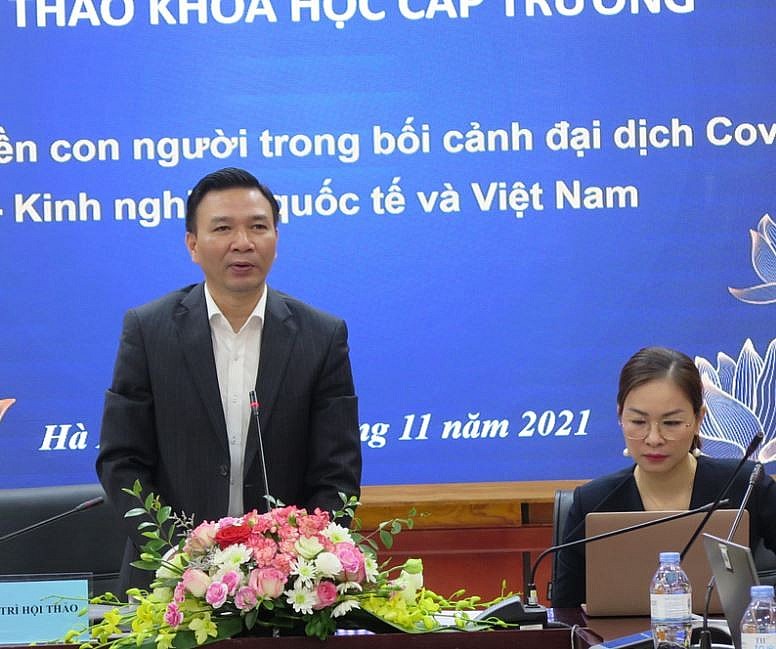 |
| Photo: Bao Phap Luat |
International cooperation to ensure human rights
Throughout history, infectious disease outbreaks have always been a global challenge. Pandemics such as SARS, H1N1, Ebola, Covid-19, affect human rights, economic cooperation activities, and cultural exchanges. The virus spreads across borders through different means. Prevention measures can only work when countries have effective cooperation mechanisms. Countries should cooperate in applying appropriate restrictions, transferring experience in prevention and treatment, supporting poor and developing countries that do not have enough resources to prevent the pandemic.
From the perspective of developing and implementing Covid-related policies in other countries, Counselor Tran Chi Thanh, Vietnamese deputy chief of mission in Canada said policies development and application must be based on scientific evidence, in consultation with representatives of affected communities. They must come with a specific application time and based on actual developments. They must also be regularly evaluated to make appropriate adjustments.
Policies must be synchronously applied across all localities and to all people, regardless of gender, age, nationality, place of residence.
In addition, communication work must be timely and transparent, especially about the current and future measures when the pandemic shows developments, both in bad or good directions.
According to Counselor Tran Chi Thanh, the government of Canada considered the prevention of the pandemic a human rights issue from the early stage. They see the pandemic as a risk to the right to live and access health care, which is protected by Canadian laws. All levels of government have an obligation to prevent the spread of Covid-19 and treat infected people without discrimination while taking into account the impacts on human rights in the process.
In Indonesia, the right to health care is the first to be affected, also the government's highest priority. Special attention is paid to the health of medical workers - the frontline force that determines the success of the fight against the pandemic and the key force to ensure that everyone can access health care.
Nguyen Hai Luu said the promotion and protection of human rights in the new situation needed the cooperation of the international community, especially the central role of the United Nations, in finding solutions to both respond to the far-reaching impacts of the pandemic and ensure basic human rights. The United Nations already has an independent mechanism for the protection and promotion of human rights, he emphasized.
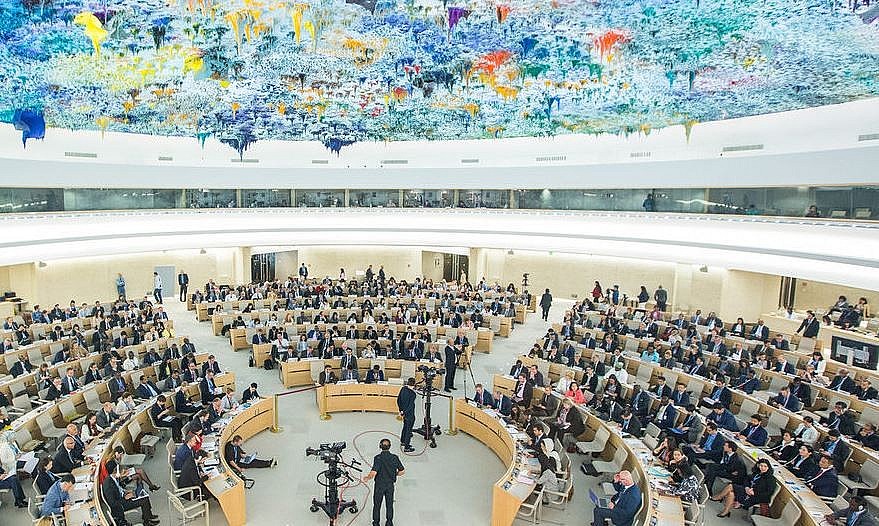 |
| A United Nations Human Rights Council session. (Photo: Geneva Environment Network) |
During the pandemic, the United Nations Human Rights Council plays a vital role in ensuring the promotion and protection of human rights. Pandemic-related topics are focused on its discussions, emphasizing the need to ensure equitable access to health care services, including drugs and vaccines. Vaccines should be considered public property, while economic and social rights should receive more attention than private interests.
The council has approved many resolutions on Covid-19 prevention and vaccine distribution such as the "Human rights implications of the Covid-19 pandemic on young people" (48th session), "Ensuring equitable, affordable, timely and universal access for all countries to vaccines in response to the coronavirus disease (Covid-19) pandemic" (46th session), "Central role of the State in responding to pandemics and other health emergencies" (44th session), Presidential Statement on Human Rights implications of Covid-19 (43rd and 47th session).
These resolutions affirm the international community's determination to respond to the pandemic and set out specific measures to strengthen cooperation, effectively distribute vaccines, and call for further coordination to cope with the unprecedented pandemic.
According to Nguyen Hai Luu, Vietnam, as a proactive and responsible member of the international community, contributes to the joint efforts of the United Nations, participating in initiatives and resolutions to cope with the pandemic and distribute vaccines. The topic will continue to be prioritized by the country in the coming time, with the hope that the pandemic will soon be controlled so that people can return to their normal lives and enjoy their basic human rights.
| Ph.D. Chu Manh Hung, Secretary of the Party Committee, Chairman of Hanoi Law University's Council said: "There are still gaps in both legal and practical aspects in ensuring human rights in the pandemic. Therefore, the conference is a scientific forum for experts, scholars, and staff in the field to discuss and evaluate legal and practical issues to ensure human rights in Covid 19. At the same time, the conference proposes to the competent authorities recommendations and solutions to strengthen the legal framework in ensuring human rights in Vietnam. |
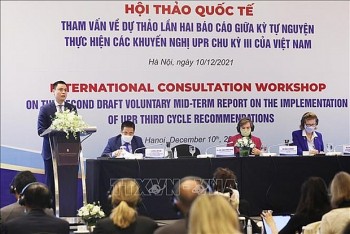 | UN to Further Support Vietnam in Human Rights Issues The United Nations will continue to support Vietnam in human rights issues in the time ahead, Acting UN Resident Coordinator in Vietnam Rana Flowers has ... |
 | Vietnam Contributes to Ratification of Global Migration Compact Mihyung Park, chief of mission at the International Organisation for Migration Vietnam, said the country had contributed to the building and ratification of the Global ... |
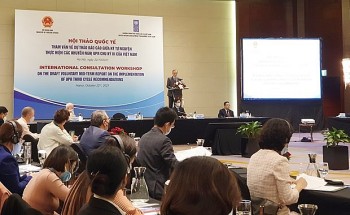 | Vietnam shows excellent progress in ensuring socio-economic rights: foreign officials Vietnam has recorded inclusive results, even compared with other regional countries, in social protection, health insurance, poverty reduction and gender quality. |
Recommended
 Viet's Home
Viet's Home
Vietnam’s Dynamic Growth Impresses Former New Zealand Ambassador
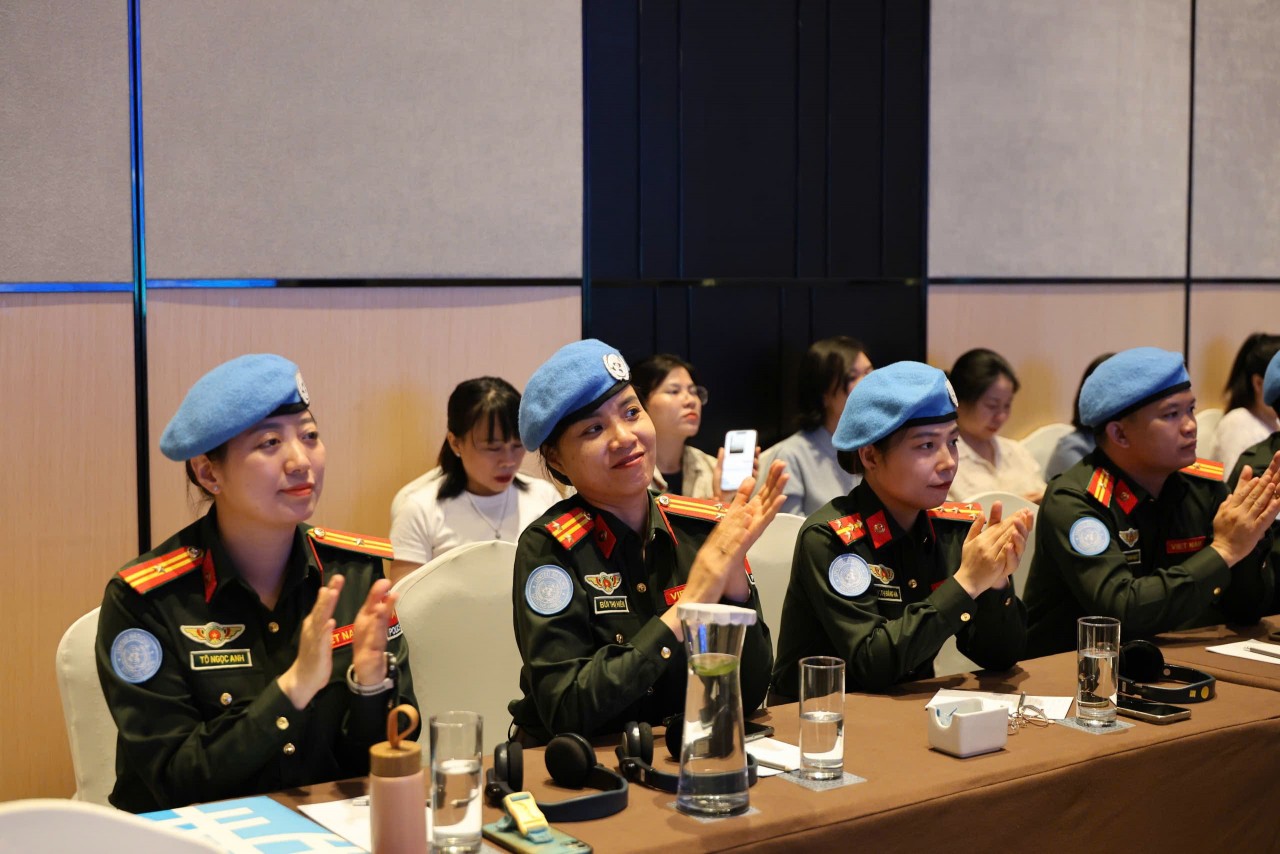 Viet's Home
Viet's Home
Vietnam Hosts High-Level Forum to Promote Women’s Participation in UN Peacekeeping
 Viet's Home
Viet's Home
Vietnam’s Digital Map Updates 34 Provincial-level Administrative Units
 Viet's Home
Viet's Home
Vietnamese Peacekeepers in Abyei Respond to World Environment Day
Popular article
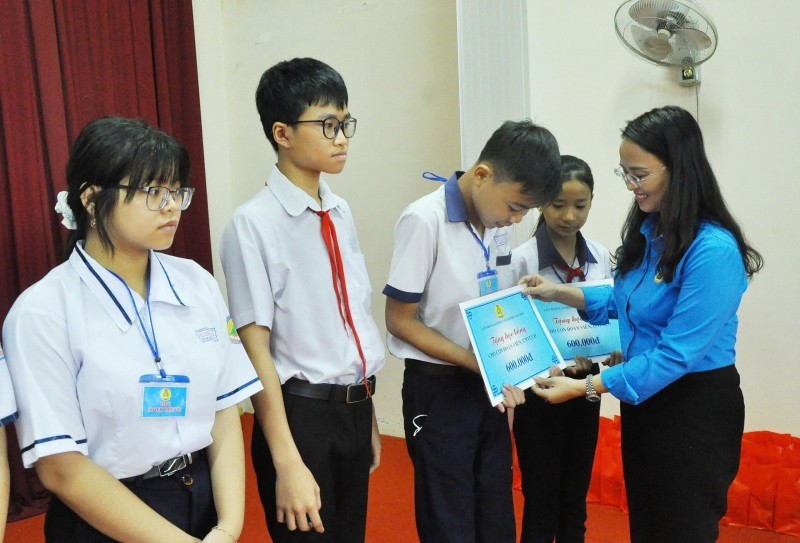 Viet's Home
Viet's Home
Can Tho Awards 500 Scholarships to Workers’ Children
 Viet's Home
Viet's Home
Traditional Martial Arts Exchange between Sinh village (Hue City) and Katsuragi City (Japan)
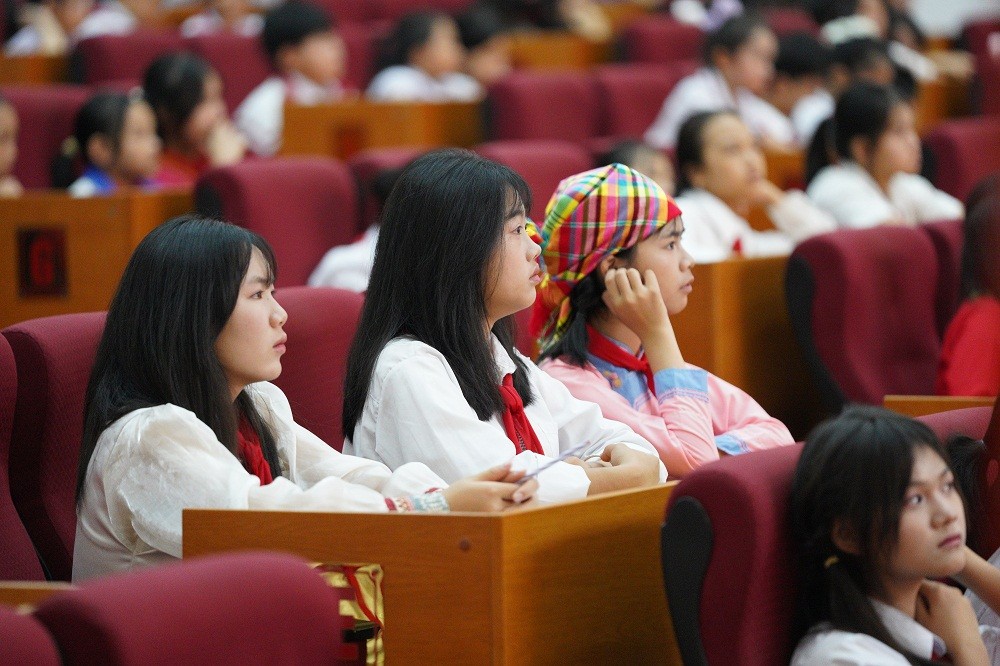 Viet's Home
Viet's Home
Lai Chau National Assembly, People's Council Delegates Hold Dialogue with Children
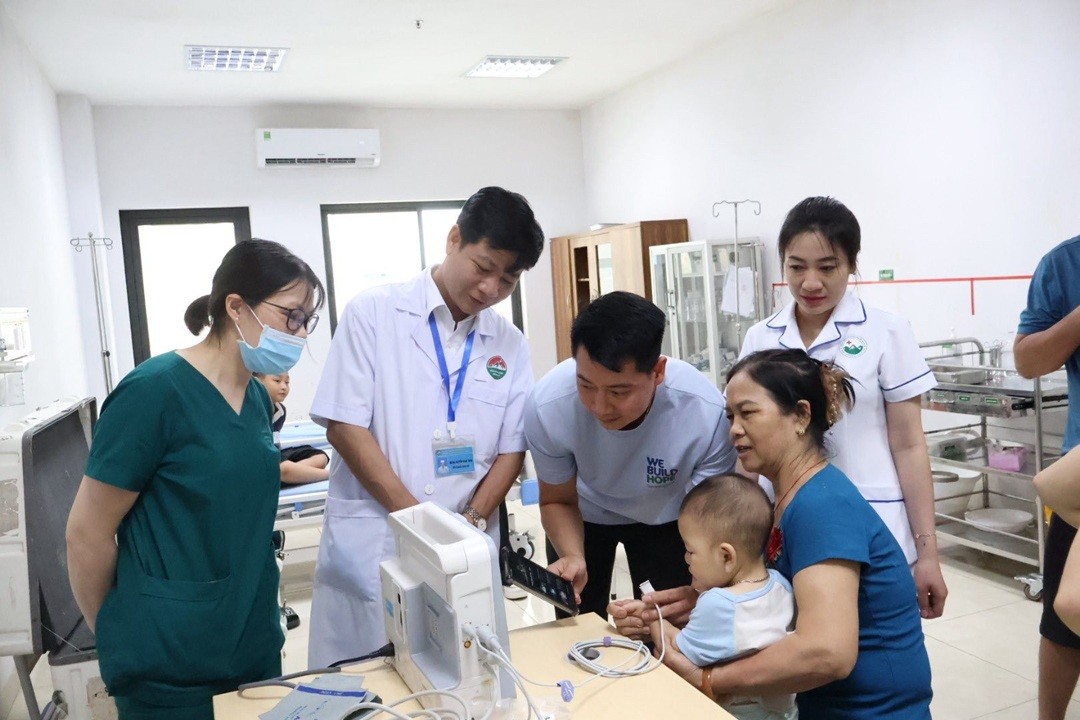 Viet's Home
Viet's Home




